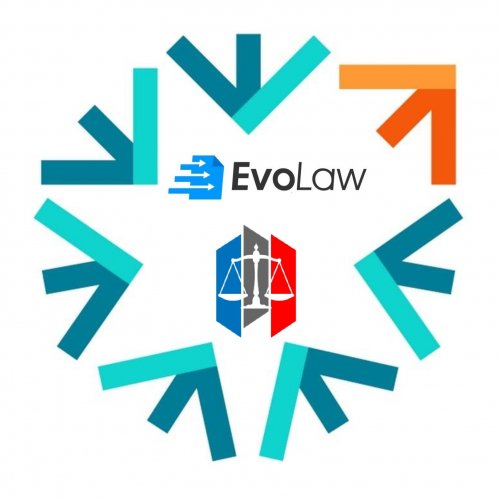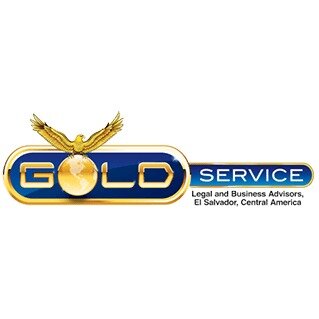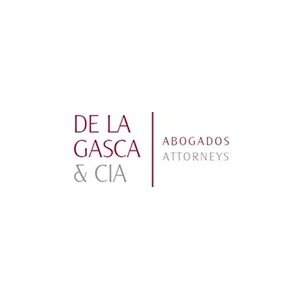Best Antitrust Litigation Lawyers in El Salvador
Share your needs with us, get contacted by law firms.
Free. Takes 2 min.
Or refine your search by selecting a city:
List of the best lawyers in El Salvador
About Antitrust Litigation Law in El Salvador
Antitrust litigation, also known as competition law litigation, focuses on maintaining fair competition in the marketplace by regulating the conduct of businesses and protecting consumer interests. In El Salvador, antitrust laws are designed to prevent anticompetitive agreements, abuse of dominant positions, and other practices that could harm the competitive process. These laws are enforced by specialized government agencies and allow for both administrative and judicial remedies. Antitrust litigation can arise when a business, consumer, or regulatory authority challenges actions or agreements that they believe violate the country’s competition rules.
Why You May Need a Lawyer
There are several situations where obtaining legal assistance in antitrust litigation is essential:
- If your business is accused of engaging in practices that may restrict competition, such as price-fixing, bid-rigging, or market allocation.
- When you suspect that a competitor is abusing its dominant market position in a way that negatively affects your business operations.
- If your company is under investigation by the local competition authority for alleged violations of antitrust laws.
- When considering mergers, acquisitions, or joint ventures that may raise competition concerns in El Salvador.
- If you are a consumer or business harmed by anticompetitive practices and wish to seek damages or other remedies through the courts.
- If you need guidance on compliance programs to avoid inadvertent violations of antitrust regulations.
Given the complexity of antitrust cases, a lawyer with specialized experience can help you navigate investigation processes, represent you during proceedings, and provide strategic advice on compliance.
Local Laws Overview
Antitrust or competition law in El Salvador is primarily governed by the “Ley de Competencia” (Competition Law), enacted in 2006 and its subsequent reforms. The main objectives of the law are to promote free and fair competition, sanction anticompetitive conduct, and foster economic efficiency. Key aspects include:
- Prohibited Conduct: The law prohibits agreements between businesses that restrict competition, such as collusion on prices, output, or markets. It also restricts abuse of a dominant market position through predatory pricing, discrimination, or refusal to deal.
- Merger Control: Certain mergers and acquisitions that may significantly reduce competition require notification and authorization from the Superintendencia de Competencia (Competition Superintendence).
- Investigation and Enforcement: The Competition Superintendence is the government authority tasked with investigating, sanctioning, and promoting competition. They can impose fines, order the cessation of unlawful practices, and recommend competitive safeguards.
- Legal Proceedings: Administrative procedures are managed by the Competition Superintendence, but judicial enforcement and appeals can bring cases before El Salvador’s courts.
- Sanctions: Violations can result in significant fines, orders to alter business behavior, and, in some cases, the nullification of offending agreements.
Frequently Asked Questions
What is considered an anticompetitive practice in El Salvador?
Anticompetitive practices include cartel agreements such as price-fixing, market sharing, bid-rigging, as well as abuse of a dominant position like predatory pricing or unfair obstacles to competitors.
Who enforces antitrust laws in El Salvador?
The Superintendencia de Competencia (Competition Superintendence) is responsible for the enforcement of antitrust laws, including conducting investigations and imposing sanctions.
Can consumers file complaints about anticompetitive behavior?
Yes, both consumers and businesses may file complaints with the Competition Superintendence if they suspect violations of competition law.
What sanctions can be imposed for violating antitrust laws?
Sanctions include monetary fines, orders to cease illegal conduct, possible nullification of agreements, and recommendations for market or organizational changes.
Do all business agreements need to be reported to authorities?
Only certain agreements, particularly those involving significant mergers or acquisitions that may affect competition, require prior notification and approval by the Competition Superintendence.
What is the process for investigating antitrust violations?
The authority may act on complaints or its own initiative, conducting investigations that can involve document requests, interviews, or inspections before issuing a resolution.
Can a decision by the Competition Superintendence be appealed?
Yes, parties can challenge the decisions of the Competition Superintendence through administrative appeals and then, if necessary, through the local courts.
Is there a deadline for filing an antitrust complaint?
While there is no fixed national statute of limitations for all types of complaints, it is recommended to act quickly, as delays can affect the investigation and potential remedies.
How can a business ensure compliance with antitrust laws?
Businesses should implement internal compliance programs, seek legal advice when entering agreements, and conduct regular reviews to identify and rectify risky practices.
Can foreign companies be subject to antitrust enforcement in El Salvador?
Yes, if their actions have effects on the Salvadoran market, foreign companies and cross-border transactions can fall within the scope of local competition law enforcement.
Additional Resources
If you need further information or assistance, consider consulting these resources:
- Superintendencia de Competencia: This is the principal regulatory authority responsible for investigating and sanctioning competition law violations in El Salvador. They offer detailed guides and accept public complaints.
- Procuraduría General de la República (Office of the Attorney General): They can provide guidance, particularly if antitrust issues overlap with consumer protection or criminal concerns.
- Local Law Firms and Chambers of Commerce: Many provide educational materials, seminars, and referrals for specialized legal assistance in antitrust matters.
- Academic Publications and Research Institutes: Local universities and research centers sometimes offer reports and analysis on competition law developments in El Salvador.
Next Steps
If you believe you have been affected by anticompetitive practices, or if your business needs guidance on compliance or faces an investigation, here are practical steps you should consider:
- Gather all relevant facts and documentation regarding the conduct or agreement in question.
- Contact a qualified local lawyer with experience in competition or antitrust law to evaluate your case and discuss your options.
- If appropriate, file a formal complaint or notification with the Superintendencia de Competencia.
- Implement or update internal compliance programs to minimize the risk of future violations and train staff on competition law requirements.
- Review any business agreements or proposed mergers with legal counsel to ensure they meet local regulatory standards.
- Stay informed about changes to antitrust legislation and enforcement trends by following updates from relevant authorities and associations.
Prompt and informed action can help protect your interests, minimize legal risks, and ensure compliance with El Salvador’s antitrust framework.
Lawzana helps you find the best lawyers and law firms in El Salvador through a curated and pre-screened list of qualified legal professionals. Our platform offers rankings and detailed profiles of attorneys and law firms, allowing you to compare based on practice areas, including Antitrust Litigation, experience, and client feedback.
Each profile includes a description of the firm's areas of practice, client reviews, team members and partners, year of establishment, spoken languages, office locations, contact information, social media presence, and any published articles or resources. Most firms on our platform speak English and are experienced in both local and international legal matters.
Get a quote from top-rated law firms in El Salvador — quickly, securely, and without unnecessary hassle.
Disclaimer:
The information provided on this page is for general informational purposes only and does not constitute legal advice. While we strive to ensure the accuracy and relevance of the content, legal information may change over time, and interpretations of the law can vary. You should always consult with a qualified legal professional for advice specific to your situation.
We disclaim all liability for actions taken or not taken based on the content of this page. If you believe any information is incorrect or outdated, please contact us, and we will review and update it where appropriate.
Browse antitrust litigation law firms by city in El Salvador
Refine your search by selecting a city.














